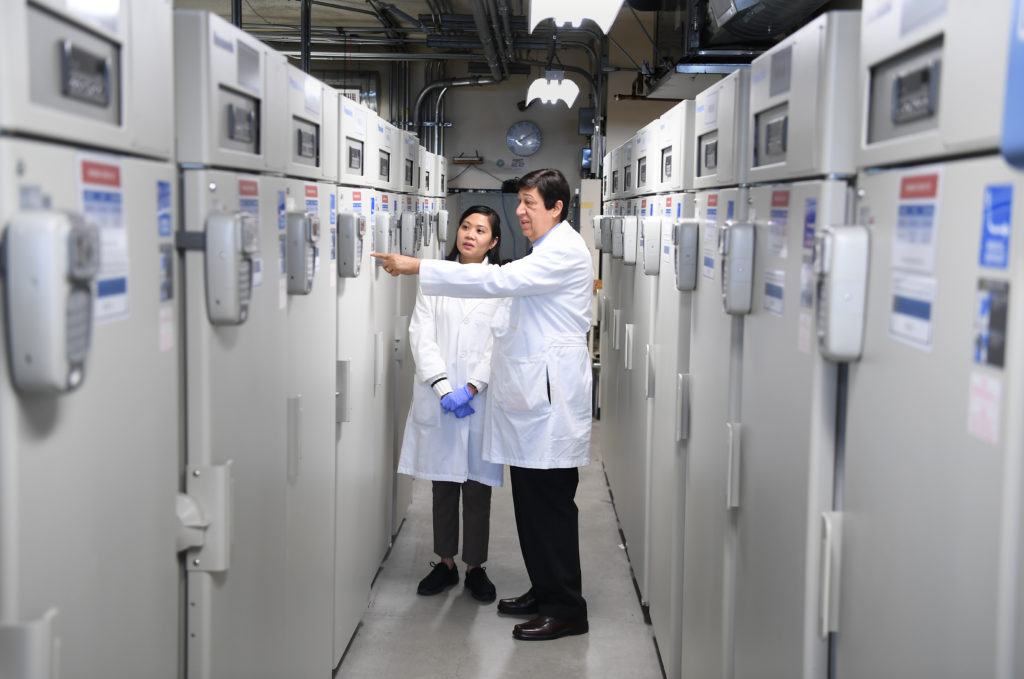Specimen Repository
At the Saint John’s Cancer Institute, we maintain a unique bank of frozen or paraffin-embedded melanoma specimens collected since 1971. This specimen repository is linked to our historical database, an information system that was begun in 1971 by Dr. Donald Morton and Dr. Robert Elashoff, and now contains records for more than 14,600 melanoma patients.
The specimen repository includes sera, lymphocytes and tumor cells, tumor tissues and normal tissues, and cell lines.
There are more than a million vials of sera and almost 150,000 vials of lymphocytes for cellular assays. Serial serum samples obtained from patients during regular clinic visits or according to multicenter trial protocols enable the immediate study of the relationship of tumor markers to the course of disease. Many specimens are linked to extended follow-up data and clinical outcomes, making them invaluable for correlative studies. The annotated specimen bank and electronic clinical database are used in tandem for prospective and retrospective investigations of prognosis, recurrence, and tumor biology. All specimens and linked data are coded to preserve donor confidentiality.

In accordance with the National Cancer Institute’s resource sharing policies, Saint John’s Cancer Institute is committed to making its melanoma specimen repository available for collaborative studies with external researchers. Investigators interested in obtaining specimens should email us a brief description of the type and number of specimens needed. If specimens are available, we will ask for a research proposal detailing the proposed use of the specimens and justification for sample size. Proposals are reviewed based on clinical and scientific import, preliminary data, statistical support showing feasibility, and demonstration that use of this unique and limited resource is crucial to the research proposed.
Evidence of funding is not required to submit a proposal but must be obtained before specimens can be released.
In addition, the authorization for use of specimens is not considered final until the applicant signs a specimen use agreement to comply with standard procedures for data analysis, data confidentiality, authorship, and intellectual property sharing. Finally, evidence of IRB approval for the proposal is required before release of samples.
Requests for specimen amounts that would exhaust the repository supply or curtail specimen access by Saint John’s Cancer Institute investigators will not be honored. Specimens are provided for research purposes only. Specimens and their products shall not be sold (or distributed free of charge) to third parties.

